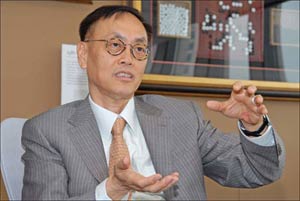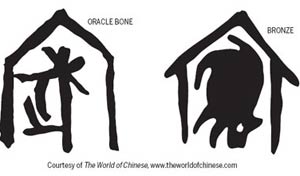Guangzhou debuts its happiness meter
Updated: 2011-10-14 08:44
By Meng Jing (China Daily)
|
|||||||||
One of the richest provinces in China has begun to shift away from filling its local coffers to filling its residents with happiness.
Guangdong province has released on Oct 11 what it calls its happiness index system to the public in a plan to take its residents' happiness into account when assessing the performance of government officials.
Officials say it is the first ever happiness-measuring system adopted by a provincial government.
"The system is meant to make local governments at various levels focus more on people's needs and desires, helping people to feel more content," said Li Chunhong, deputy secretary-general of the Guangdong provincial government, at a news conference.
The so-called happy index system consists of both objective and subjective indices. The objective indices focus on a resident's employment and income, medical care and health, level of consumption and housing, education and the social services at their disposal.
The subjective indices look at how residents feel about their personal development, quality of life and spirituality.
Information for the indices will be gathered from a survey of 6,900 people between the ages of 16 and 65 who have lived in the province for at least a year. The first happiness index for 2010 will be released by the end of the year, according to the Guangdong government.
Korea and China's Taiwan and Hong Kong.
China, despite its strong economic growth, ranks 125 out of 155 countries in Gallup World Poll's happiest countries in the world survey.
The survey with thousands of respondents released in July 2010 shows that China, the second largest economy in the world, is at the same level with Kenya and Ghana in Africa in terms of happiness, though Ghana's economy is also one of the fastest growing economies in the world.
With China's transformation of social infrastructure pushed forward by rapid urbanization and an aging population, it is urgent for China to shift from a GDP-focused approach to a more human-centered style of government, says Hu Angang, director of the Centre for China Studies at Tsinghua University.
China is transforming from a low-income to a medium-income nation, with per-capita GDP climbing from $1,000 in 2003 to $7,600 in 2010, according to the World Bank's World Development Indicator.
"Now China faces many challenges to further its economic development, which includes ensuring its sustainability and tackling unequal income distribution," Hu wrote in China Dialogue in February.
The gap between the rich and poor and between urban and rural residents is widening, with no sign of a turnaround, Hu says.
"The focus of economic development needs to shift from expansion and investment to the quality and fairness of growth, and its social and environmental impacts," he says.
The idea of making more people feel happier is attracting national attention. President Hu Jintao and Premier Wen Jiabao have made it clear in their speeches at different occasions that a happier and a more dignified life for Chinese people is the foundation of a harmonious society.
Several cities are following in Guangdong's footsteps. In its 12th Five-Year Plan (2011-2015), Beijing included the goal of "making people happier".
Chongqing municipality in Southwest China pledged to create a more livable city for its residents by doubling the income of farmers by 2015.
(China Daily 10/14/2011 page3)









